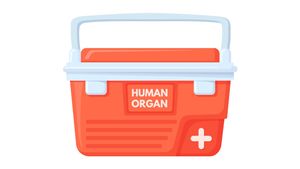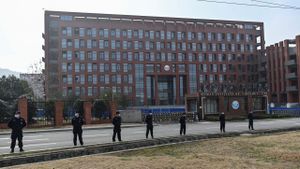Three workers tragically lost their lives on Sunday morning at the Bantala Leather Complex near Kolkata, just days after the Supreme Court banned manual scavenging and sewage cleaning practices. The fatalities of Farzem Sheikh, Suman Sardar, and Hasibur Sheikh are reportedly linked to potential drowning and inhalation of toxic fumes, raising serious questions about safety practices within labor operations.
The incident deepened the scrutiny on the Kolkata Metropolitan Development Authority (KMDA) and the Kolkata Municipal Corporation (KMC) after the workers entered the 10-foot-deep manhole, allegedly without any protective gear. It all started when one of them fell ill and the others attempted to assist, leading them all to get trapped. The alarm was raised after they failed to resurface, prompting rescue efforts from the disaster management force and fire brigade.
Kolkata Mayor Firhad Hakim swiftly responded to the incident, stating, "This incident should not have happened. The discharged water from the factory got stuck in the manhole..." He expressed deep concern, confirming the chaotic scene as rescuers worked diligently to recover the bodies.
The three men were contracted to clean sewage, connected with allegations of negligence affecting their rights and safety as workers. Unfortunately, they were reportedly engaged for manual cleaning when they fell victim to dangerous job conditions. Mayor Hakim underscored this tragedy as one of heartache, indicating the Chief Minister's directive to provide compensation of Rs 10 lakh to each victim's family.
The circumstances leading to the workers’ deaths come closely after the Supreme Court made headlines across India with its ruling against manual scavenging. The ruling demanded complete cessation of manual cleaning operations in six major metropolitan cities, including Kolkata, establishing the legal boundaries for labor practices. The disregard for this rule, evidenced by this incident, continues to expose the hazardous working conditions endured by many laborers.
Sources revealed details about how the sewer cleaning process was conducted. The workers were allegedly involved with cleaning sewage mixed with chemical waste, integral to the leather production process at the complex. An initial investigation indicated the potential for suffocation due to toxic fumes, and post-mortem examinations would confirm the exact cause of death.
Alimuddin Sheikh, the contractor responsible for the labor engagement, has since been arrested, underscoring the failures of oversight within the KMC. There are serious accusations from the families of the deceased who claim he lured them under false pretense, promising them construction work, only to instead assign them to dangerous sewage cleaning duties.
Questions have arisen concerning the responsibilities of the KMC and the oversight of outsourced contracts. Critics note the disconnect between the existence of safety protocols and the apparent lapses during their implementation. "Questions are also being raised on how the authorities... can avoid the responsibility of monitoring..." many news sources reported, emphasizing calls for systematic accountability from officials overseeing contractor compliance.
Following the tragedy, the KMC has initiated its internal investigation, with both the factual circumstances surrounding the men’s deaths and the broader protocols for manual scavenging under review. The probe will seek to understand how these workers were permitted to carry out their work without proper safeguards and whether smart deployment of resources could have avoided this incident altogether.
Mayor Hakim, who has taken the incident seriously, stated, "Considering the seriousness of the matter, the Mayor himself rushed to the spot of the accident..." making apparent the urgency and gravity with which the civic leadership is responding to the aftermath. Not only does this case signal the need for urgent reform, but it also questions the effectiveness of existing statutes aimed at protecting laborers from exploitative conditions.
Public sentiment is increasingly agitated over the repeated accidents associated with manual scavenging practices, which is banned under Indian law. The March 2013 law explicitly outlawed manual cleaning of sewers without proper safety measures, yet discrepancies remain evident, as displayed through this grim event. The community is rallying for stricter enforcement of the law as more voices emerge demanding justice for the deceased workers.
Despite the promise of compensation, the loss faced by the families is immeasurable, prompting discussions about reforming practices to spare others from similar tragedies. The weight of accountability now rests on the KMC and affiliated contractors, especially with the next court hearing scheduled to push for remedial action.
At this grim juncture, Mamata Banerjee's government faces considerable pressure to act against unacceptable practices and reinforce both labor rights and safety standards, emphasizing the need for institutional reforms to eliminate manual scavenging effectively. The community's heartache cannot remedy the systemic failures leading to such loss of life, making it imperative for officials to heed the dire warnings embedded within this incident.



